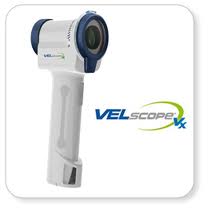
This month we recognize the importance of oral cancer screening in the prevention of late stage diagnosis for cancers of the mouth, neck and throat.
Oral cancer rates unfortunately continue to rise worldwide, and the Oral Cancer Foundation predicts that over 45,000 new cases will be diagnosed in 2016 in the United States alone. One of the major factors affecting the rate of this type of cancer is a lack of prevention through routine screening. Although oral cancer screening is quick, painless and relatively inexpensive, many go without it for years due to lack of dental and medical preventative care.
Columbus, GA dentist Dr. Albert Caves offers oral cancer screening as part of routine dental care and uses VELscope® technology to enhance the visual screening procedure for a more accurate evaluation of a patient’s oral cavity. Early diagnosis can often be life saving as the survival rate drops dramatically with late stage diagnoses.
How Does VELscope Work?
VELscope® technology uses blue fluorescent light to examine the soft tissue of the mouth. Abnormal areas will not fluoresce properly, indicating the possible presence of cancerous cells and prompting further evaluation for oral cancer.
In addition to a traditional visual examination by Dr. Caves, this technology can aid in spotting oral cancer in the early stage, when treatment is likely to be both conservative and successful.
If you smoke or use tobacco of any kind, let us know at your next visit so we can discuss your increased risk for oral cancers and how to look for the early warning signs.
Routine Dentistry & Your Health
When you visit Dr. Caves twice a year for routine dental cleanings and exams, we are able to become familiarized with your oral health and more effectively spot suspicious areas of soft tissue or the appearance of sores or lumps in the mouth or neck area.
Preventive dental care plays an important role in maintaining lifelong dental health and in the prevention of overall health concerns such as oral cancer. Dr. Caves and his staff emphasize the benefits of disease prevention and take time to understand the personal health concerns of patients and educate them on how best to achieve and enjoy lasting oral health.
